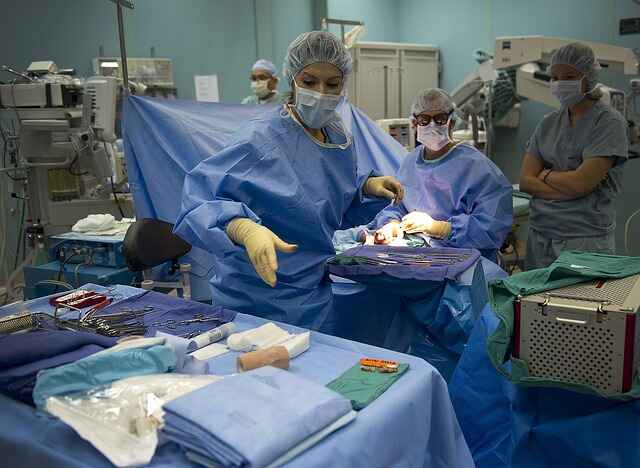What is Crohn’s Disease?
Crohn’s disease is an IBD (inflammatory bowel disease). It causes swelling (inflammation) of the tissues in your digestive tract, which can result in abdominal pain, severe diarrhoea, exhaustion, weight loss, and malnutrition.
Crohn’s disease-related inflammation can affect different parts of the digestive tract in different persons, most commonly the small intestine. This inflammation frequently penetrates deeper layers of the bowel. Crohn’s disease can be extremely painful, crippling, and occasionally even fatal.
What causes Crohn’s Disease
The cause of Crohn’s disease is unknown. Some individuals consider it an autoimmune condition. According to research, long-term inflammation may occur because your immune system fights an innocuous virus, bacteria, or food in your gut rather than your own body.
Factors which will increase the chance of inflammation include:
- genetic factors
- person’s immune system
- environmental variables
Also, Read 11 Myths About Weight Loss You Should Know
Symptoms
When the disease is active, the symptoms usually include:
- Diarrhea
- Fever
- Fatigue
- Abdominal pains and cramps
- Blood in the stool
- Mouth ulcers
- Decreased appetite and weight loss
- Pain or discharge near or around the anus due to inflammation leading from the tunnel to the skin (fistula)
- irritation of the eyes, joints, and skin
- Biliary duct or liver infection
- Kidney stones
- iron deficiency (anaemia)
- Delay in children’s growth or sexual development

Risk factors
Several things can make you more likely to induce Crohn’s:
Diagnosis
A single test cannot diagnose Crohn’s disease.
- Blood test: Your doctor may recommend blood tests to check for anaemia (a condition in which there aren’t enough red blood cells to transport enough oxygen to your tissues) or infection.
- Stool test: Your doctor may ask you to provide a stool sample so they may check for undetected (occult) blood or other organisms in your faeces, such as bacteria that cause infections or, in rare instances, parasites.
- Colonoscopy: Using a tiny, flexible, illuminated tube with a camera at the end, your doctor can observe your whole colon and the very end of your ileum (terminal ileum).
- Computerised tomography (CT): You might undergo a CT scan, which is a type of X-ray that shows greater detail than a regular X-ray. This exam examines the entire colon as well as tissues outside of the bowel.
- MRI: An MRI scanner creates comprehensive images of organs and tissues by using a magnetic field and radio waves. A fistula surrounding the anal area (pelvic MRI) or the small intestine (MR enterography) can be evaluated using MRI.
- Capsule endoscopy: For this test, you ingest a capsule that contains a camera. The camera takes pictures of your small intestine and sends them to a recorder that you wear on your belt.
- Balloon-assisted enteroscopy: A scope is used along with an overtube for this exam. This allows the clinician to see further into the small bowel than ordinary endoscopes can.
Treatment
Your doctor may recommend one or more of the following treatments for Crohn’s disease:
- Antibiotics: Antibiotics are drugs that can be used to prevent or treat infections. Severe infections might result in abscesses (pus-filled pockets). They can also produce fistulas (connections between organs that do not ordinarily connect).
- Antidiarrheal medication: Prescription medications like loperamide (Imodium A-D®) help stop severe diarrhoea.
- Biologics: These medications work by employing monoclonal antibodies to inhibit the immune system.
- Bowel rest: Your doctor may advise abstaining from meals and liquids for a few days or more to give your intestines a chance to heal.
- Corticosteroids: Corticosteroids such as cortisol, prednisone, and others reduce inflammation caused by autoimmune illness.
- Immunomodulators: These drugs lessen inflammation by calming an overactive immune system. Some of these include cyclosporine and azathioprine.
- Surgery: Surgery cannot cure Crohn’s disease, although it can address its consequences. Surgery may be required to repair intestinal perforations (holes), obstructions, or bleeding.

Diet
- Refined grains (white rice, white bread), well-cooked vegetables without skins or seeds, lean proteins, and canned fruits without skins or seeds are all foods to consider.
- Learn and avoid foods that cause your symptoms. Spicy foods, fatty foods, high-fibre foods, coffee, and alcohol are common triggers that differ from person to person.
- Stay hydrated by drinking plenty of water, especially if diarrhoea is a frequent complaint.
- Smaller meals throughout the day, rather than large ones, can be easier on the digestive system and help manage symptoms.
- Easy-to-digest foods like bananas, applesauce, smooth nut butter, cooked veggies, and plain rice or pasta might be kinder on the digestive tract.
- Foods high in omega-3 fatty acids, such as fatty fish (salmon, mackerel, sardines) or flaxseeds, may have anti-inflammatory benefits.
- Probiotic-rich foods with live active cultures, such as yoghurt or kefir, may improve gut health.
Care tips
Some self-care measures may also help alleviate Crohn’s symptoms.
- NSAIDs should be avoided. Instead, take paracetamol.
- Stop smoking. This may help prevent flare-ups, reduce the quantity of medicine you use, and reduce your chances of requiring surgery.
- Some Crohn’s disease patients are lactose intolerant or have difficulties digesting dairy products. If this is the case for you, look into lactose-free options or dairy substitutes.
- Control your tension. Stress does not cause Crohn’s disease, although it might exacerbate symptoms. Try some of the above-mentioned mind-body therapies, such as meditation or yoga.
Also, Read Complete Guide on Dementia: Causes, Symptoms, and Care Tips





